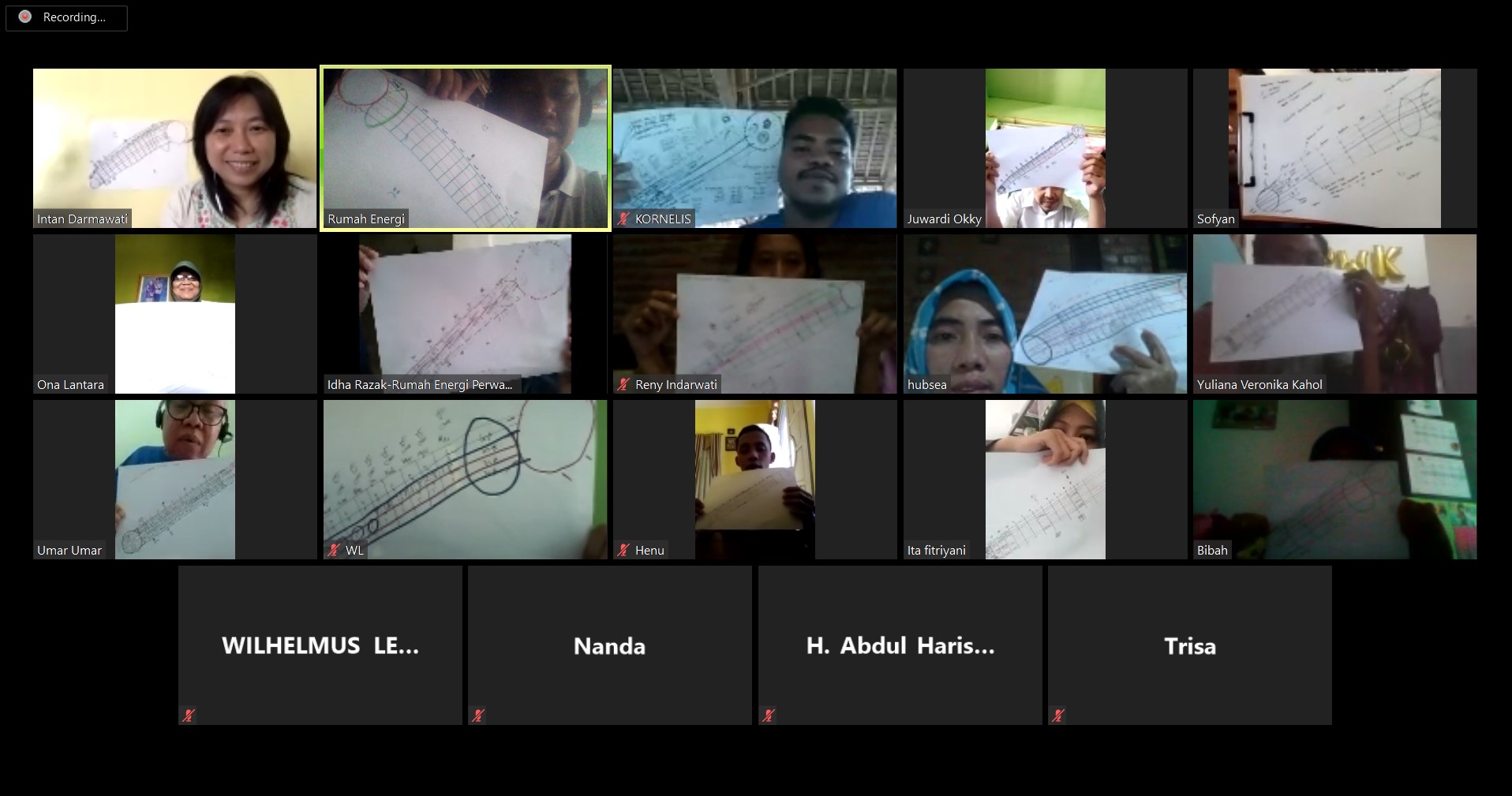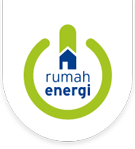Financial Action Learning for Sustainability (FALS) Berbasis Kesetaraan Gender

During the COVID-19 pandemic, the policy of social restrictions as an effort to reduce the spread of this virus has resulted in a decline in the economic level of various groups of people. In terms of financial business, this pandemic also contributed to the reduction in liquidity due to the withdrawal of public savings/savings funds in financial institutions, particularly in Cooperative Microfinance Institutions. In developing the Domestic Biogas Program (BIRU) towards a market-based biogas sector, Yayasan Rumah Energi (Rumah Energi) continues to develop the capabilities/capacities of its Field Implementing Partners including Cooperative Microfinance Institutions as Biogas Credit Providers and Development Partners that are being developed to be developed a RESCO (Renewable Energy Service Company). The implementation of the BIRU Program in 2019 – 2020 also requires an indicator of gender equality in the marketing of Home Biogas technology. This is also an effort to achieve the 5th SDG target. For Rumah Energi, efforts to fulfil gender equality in the House Biogas sector are also a continuation of the implementation of the Gender Action Learning System (GALS) that has been implemented in marketing the House Biogas technology in the IVORY and LIGHT Program in the 2016 – 2017 period in the provinces of DI Yogyakarta, Nusa Tenggara province West and East Nusa Tenggara (Sumba Island). So YRE intends to continue the provision of knowledge on gender equality in the BIRU Program which focuses on financial management, both in families and institutions. This methodology is the Financial Action Learning for Sustainability or FALS.

In connection with the biogas sector, this pandemic also contributed to the cessation of potential user interest in accessing biogas credit facilities and building the BIRU reactor between March and May 2020. This condition also shows one of the problems faced by BIRU Program partners to market products related to House Biogas to members/customers or the community at large, namely the low awareness of financial literacy/ability to manage finances at the household level up to the institutional scale. This is one of the responsibilities of the Savings and Loan Institution to members/customers in finding financial literacy methodology that is easily accepted, prioritizes equality and can be disseminated as a form of education to members/customers/customers.
Current conditions make Microfinance Institutions need to study the FALS methodology as an alternative to financial literacy education (Aware of Managing Money). The FALS method is a methodology for empowering gender-based financial management that was initiated by Linda Mayoux based on the PALS (Participatory Action Learning System). This methodology is based on 3 elements: client financial empowerment, participatory social performance management and responsible product design. So that the FALS methodology can create Responsible Financial Partnerships between Clients and Financial Service Providers that can be applied in a variety of ways, including marketing the House Biogas Program. One unique feature of the FALS method, like GALS, is that it does not prioritize complicated calculations, but through diagramming symbolic drawings that are easily understood. In FALS and GALS, drawing is a planning medium.
On 8, 11, 12 and 13 May 2020, Rumah Energi through the BIRU Program has conducted an online gender empowerment-based ToT FALS training program. This has never been done before and is different from the gender-based training methods which are usually in the form of face-to-face and group participatory discussion. This is because it follows the provisions of the PSBB policy of the ongoing COVID-19 pandemic. The 4-day activity was facilitated by Intan Darmawati, a Gender Specialist consultant from HIVOS and attended by elected representatives from 5 Cooperative Microfinance Institutions (LPO BIRU) and the RESCO (IDBP Renewable Energy Service Company) agency and representatives of the Rumah Energi Office in Central Java province, Yogyakarta, East Java, West Nusa Tenggara and South Sulawesi. KSP Qarriyah Tayyibah (Central Java) and KUD Tani Wilis (East Java) are representatives of the Cooperative institutions chosen to participate in this activity. In addition, Rumah Ilham (DIY), MG Sangkareang (NTB) and CV. Reski Abadi (Sulsel) was chosen to represent the BIRU RESCO institutions.

Intan Darmawati as the facilitator was explaining the material virtually to the participants
Understanding the concept of FALS is practised on the third day of training using tools/diagrams of the Financial Management Calendar (Financial.Management Calendar). The third-day activity was attended by 14 participants. The participants were asked to draw a diagram of the Financial Management Calendar which has the following stages:
- Determine the goals/dreams, draw a red circle at the top right (according to the dream trip);
- Write the initial conditions in the lower-left corner in black;
- Draw a path to describe net income, debt and debt repayment, operating income and credit with a period of 6 months to 1 year;
- Fill opportunities on the road according to when (months) these opportunities exist, every month at least 1 additional opportunity to earn income;
- Filling challenges under the road challenges filled by month (large expenses);
- Fill the black circle with the current conditions;
- Analysis of compartments (every month).
 Broadly speaking, the online trial of the FALS training activity was successfully carried out and achieved the desired goals and outputs. The technical inhibiting factors during the activity were only derived from internet connection signals which were sometimes not good in some of the participating areas. This caused some participants to not be able to participate in training sessions to the full. However, this obstacle can be overcome by cooperation and mutual assistance between good participants. This activity was positively appreciated by the participants. Participants from the Micro Finance Institution who attended this activity. They get an alternative method that is gender-friendly in increasing financial literacy from their members/customers, and at the same time can be applied in marketing biogas credit products. Meanwhile, from the BIRU RESCO representatives, they gained knowledge of methods that made it easier for RESCO institutions to analyze the ability of clients when marketing the Domestic Biogas technology. This activity was also appreciated positively by the representative staff of the Provincial House of Energy for gaining knowledge of methods that could be applied in the planning of each family’s financial management. And they will support the BIRU Program field implementation partners in applying this method to achieve the BIRU program targets. So that later online FALS training methods can be implemented on a larger scale which will involve the participation of more BIRU Partner institutions and will be held in the second week of June 2020.
Broadly speaking, the online trial of the FALS training activity was successfully carried out and achieved the desired goals and outputs. The technical inhibiting factors during the activity were only derived from internet connection signals which were sometimes not good in some of the participating areas. This caused some participants to not be able to participate in training sessions to the full. However, this obstacle can be overcome by cooperation and mutual assistance between good participants. This activity was positively appreciated by the participants. Participants from the Micro Finance Institution who attended this activity. They get an alternative method that is gender-friendly in increasing financial literacy from their members/customers, and at the same time can be applied in marketing biogas credit products. Meanwhile, from the BIRU RESCO representatives, they gained knowledge of methods that made it easier for RESCO institutions to analyze the ability of clients when marketing the Domestic Biogas technology. This activity was also appreciated positively by the representative staff of the Provincial House of Energy for gaining knowledge of methods that could be applied in the planning of each family’s financial management. And they will support the BIRU Program field implementation partners in applying this method to achieve the BIRU program targets. So that later online FALS training methods can be implemented on a larger scale which will involve the participation of more BIRU Partner institutions and will be held in the second week of June 2020.

